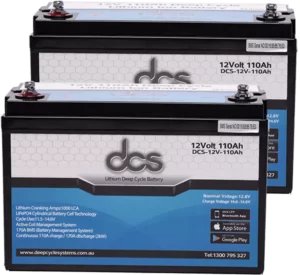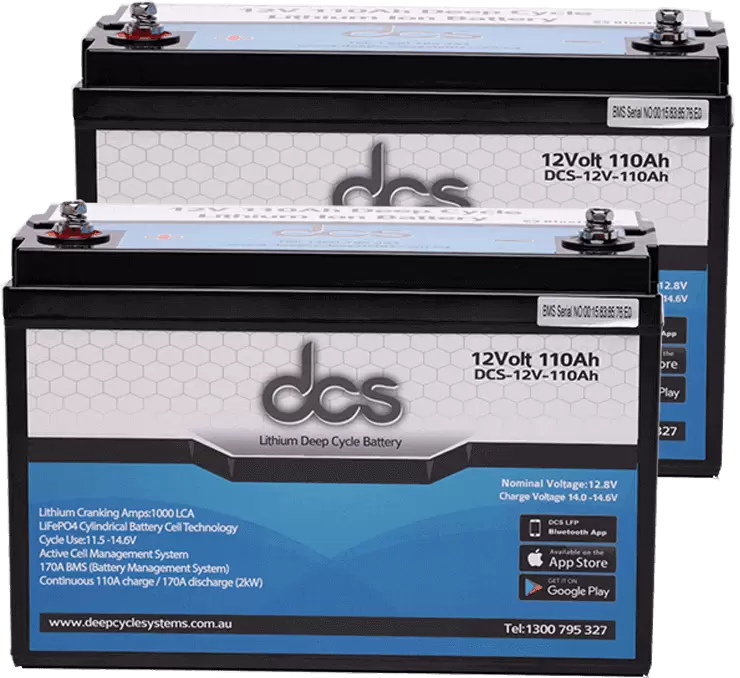The Lithium Ion Battery Pack has been revolutionizing the way we power our devices. From our phones to our laptops to our cars, the advancements in lithium-ion battery packs have made it possible for us to stay connected, powered, and mobile. This blog post will explore the current advancements in lithium-ion battery pack technology and how these changes can benefit the consumer and the environment. We’ll look at the history of the technology, the pros and cons of using lithium-ion batteries, and the potential applications for the future.
What Is Lithium-Ion Battery Pack?
A Lithium Ion Battery Pack is a type of rechargeable battery that uses lithium-ion cells to store and release electrical energy. These cells are typically grouped in a casing or housing, along with a control circuit and other components, to form a battery pack.
Lithium-ion batteries are commonly used in portable electronic devices like smartphones and laptops, as well as electric vehicles, renewable energy systems, and even spacecraft. They are prized for their high energy density, fast charging times, and long cycle life.
Unlike disposable alkaline batteries, which can only be used once and then discarded, lithium-ion battery packs can be recharged hundreds or even thousands of times before they need to be replaced. This makes them more cost-effective and environmentally friendly than single-use batteries.
 However, lithium-ion batteries can also pose safety risks if they are not designed or used properly. If the battery pack becomes damaged or overheats, it can catch fire or explode. Therefore, it is essential to follow the manufacturer’s guidelines for handling and charging lithium-ion batteries.
However, lithium-ion batteries can also pose safety risks if they are not designed or used properly. If the battery pack becomes damaged or overheats, it can catch fire or explode. Therefore, it is essential to follow the manufacturer’s guidelines for handling and charging lithium-ion batteries.
Despite these challenges, the advancements in lithium-ion battery packs continue to transform the way we power our world. From smartphones to electric cars, these powerful energy storage devices are helping to shape a more sustainable and efficient future.
Why Are They So Important?
Lithium-ion battery packs are crucial components in our modern world, powering everything from smartphones and laptops to electric vehicles and renewable energy systems. They have replaced older technologies such as nickel-cadmium and lead-acid batteries due to their higher energy density, longer lifespan, and faster charging capabilities.
In addition, lithium-ion batteries are environmentally friendly compared to their predecessors as they don’t contain toxic chemicals such as cadmium and lead. This makes them an ideal choice for powering renewable energy systems, where the need for clean energy storage is paramount.
Their lightweight, compact size also makes them the go-to choice for portable devices, such as smartphones and laptops, allowing for longer battery life and more extended periods of use. They’re also capable of powering electric vehicles, enabling longer ranges and faster charging times, ultimately leading to the widespread adoption of electric cars.
The advancements in lithium-ion battery pack technology have revolutionized the way we power our world, enabling us to become more connected, energy-efficient, and environmentally conscious. As we continue to move towards a more sustainable future, the importance of lithium-ion batteries in powering the shift towards clean energy sources cannot be overstated.
What Are The Different Types Of Lithium-Ion Battery Packs?
Lithium-ion battery packs come in various shapes, sizes, and chemistries, each designed to meet different power requirements and energy needs. Here are some of the most common types of lithium-ion battery packs:
- Lithium Polymer (LiPo) Batteries – LiPo batteries are the most commonly used lithium-ion battery packs due to their lightweight and compact size. They have a higher energy density than other types of lithium-ion batteries and can be moulded into any shape or size.
- Lithium Iron Phosphate (LiFePO4) Batteries – LiFePO4 batteries are known for their long life span, safety, and reliability. They are commonly used in electric vehicles, solar power systems, and power tools due to their ability to discharge and recharge quickly.
- Lithium Manganese Oxide (LiMn2O4) Batteries – LiMn2O4 batteries have a high energy density and are commonly used in consumer electronics such as laptops, smartphones, and tablets. They have a longer life span than other types of lithium-ion batteries and are less prone to overheating.
- Lithium Nickel Cobalt Aluminum Oxide (LiNiCoAlO2) Batteries – LiNiCoAlO2 batteries are high-performance lithium-ion batteries commonly used in electric vehicles and aerospace applications. They have a high energy density, long life span, and can handle high temperatures.
- Lithium Titanate (Li4Ti5O12) Batteries – Li4Ti5O12 batteries are known for their safety, fast charging, and long life span. They are commonly used in energy storage systems and electric buses due to their ability to handle frequent charge and discharge cycles without losing capacity.
How Do They Work?
Lithium-Ion Battery Packs function by using the movement of ions between positive and negative electrodes. Inside the battery pack, there are two types of electrodes: the anode, which is negatively charged, and the cathode, which is positively charged. Between the electrodes is a separator, which prevents them from touching each other and causing a short circuit.
During charging, positively charged lithium ions move from the cathode to the anode, which stores the energy. When the battery pack is in use, the opposite happens: the ions move from the anode to the cathode, releasing the stored energy.
This movement of ions is facilitated by a liquid electrolyte or a solid-state electrolyte, which acts as a pathway for the ions to move through. The specific chemistry of the electrolyte and electrodes varies depending on the type of Lithium-Ion Battery Pack.The process of charging and discharging a Lithium-Ion Battery Pack involves the movement of ions between the two electrodes, facilitated by the electrolyte. This mechanism allows Lithium-Ion Battery Packs to store and release energy efficiently, making them an important technology for various of applications.
What Are The Benefits Of Lithium-ion Battery Packs?
Lithium-Ion Battery Packs have revolutionized the world of portable electronic devices and power storage. Here are some of the major benefits of Lithium-Ion Battery Packs:
- High energy density: Lithium-Ion Battery Packs have a higher energy density than other rechargeable batteries. It means they can store more energy in a smaller and lighter package, making them ideal for portable electronic devices such as smartphones, laptops, and tablets.
- Long lifespan: Lithium-Ion Battery Packs have a longer lifespan compared to other types of rechargeable batteries. They can withstand hundreds of charging and discharging cycles, providing a longer-lasting power source for your devices.
- Faster charging times: Lithium-Ion Battery Packs can be charged much faster than other types of rechargeable batteries. They can be charged to their maximum capacity in a shorter period of time, providing a quick and efficient power source.
- Low self-discharge rate: Lithium-Ion Battery Packs have a very low self-discharge rate, which means they can hold their charge for a longer time when not in use. It makes them ideal for emergency power backups and other situations where power needs to be available on demand.
- Eco-friendly: Lithium-ion battery packs are environmentally friendly and do not contain toxic chemicals. They are also recyclable, making them an eco-friendly option for power storage.
Safety Innovations: Mitigating Risks and Enhancing Protection
As with any battery technology, there are risks associated with lithium-ion batteries, including overheating, short circuits, and in some cases, fires or explosions. However, safety measures have been put in place to mitigate these risks and enhance the protection of users.
One of the primary safety innovations is the development of Battery Management Systems (BMS). A BMS helps monitor the battery’s voltage, temperature, and other factors to prevent overcharging, overheating, and other potential issues. Some lithium-ion battery packs come equipped with safety features such as pressure relief valves, which release excess pressure to prevent ruptures or explosions.
Manufacturers have also been implementing more stringent safety standards for lithium-ion battery packs. For example, the UL 1642 standard requires batteries to pass tests for short-circuiting, overheating, and other safety issues before being sold to the public. The International Electrotechnical Commission (IEC) has also set standards for the safety of lithium-ion battery cells.
Another way manufacturers are improving the safety of lithium-ion battery packs is by using new materials and technologies. For example, some manufacturers are using safer electrolytes such as solid-state lithium-ion batteries are less prone to overheating or explosion.
As consumers, there are also steps we can take to ensure the safety of our lithium-ion battery packs. It includes storing them in a cool, dry place, avoiding exposing them to extreme temperatures or direct sunlight, and not exposing them to physical damage or punctures.
Overall, the safety innovations in lithium-ion battery pack technology are constantly evolving and improving. As these batteries become more common in everyday devices, it’s essential to understand the potential risks and take steps to mitigate them to ensure a safe and reliable user experience.
How to Choose the Right Lithium Ion Battery?
Choosing the right Lithium Ion Battery for your needs can be overwhelming, especially with so many options available in the market. Here are some factors to consider when selecting a lithium-ion battery pack:
- Capacity – The capacity of a battery is measured in milliampere-hour (mAh). Higher capacity batteries provide longer run time but also come with a higher price tag.
- Voltage – The voltage requirement of your device will determine the number of cells needed in the battery pack. The voltage of a lithium-ion battery varies depending on the number of cells in the pack.
- Size and Weight – The size and weight of the battery are crucial considerations, especially for portable devices. The smaller the battery, the less capacity it will hold, so find a balance between size and capacity that works for your needs.
- Chemistry – Different battery chemistries offer various benefits, including high energy density, high power, and low self-discharge. Choose a chemistry that suits your application’s needs.
- Safety – Safety is critical when working with lithium-ion batteries. Look for batteries with safety features like overcharge and over-discharge protection, temperature monitoring, and short circuit protection.
- Brand Reputation – Choose a reputable brand that produces high-quality batteries and provides adequate customer support.
Conclusion
Lithium-ion battery packs have become the powerhouse for various devices, from smartphones and laptops to electric vehicles and even homes. They offer numerous benefits such as high energy density, longer lifespan, and fast charging capabilities.
| Other Good Articles to Read |
| Skank Blogs |
| Unreal Blogs |
| Tba Blogs |
| All City Forums |
| Dany Blogs |
| Refuge Blogs |
| The Music Blogs |
| Key Forums |
| The Big Blog Theory |
| Joe Blogs |
| Blogs 4 Me |
| Blogs Emon |



